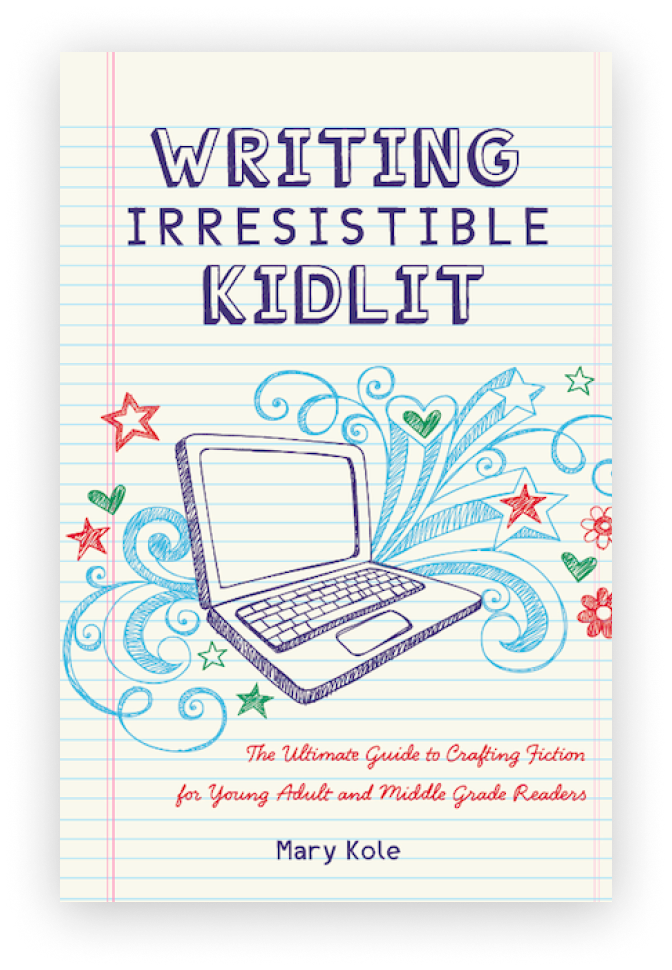How to Rock Your Writing Goals
By Mary Kole
Mary Kole is a former literary agent, freelance editor, writing teacher, author of Writing Irresistible Kidlit, and IP developer for major publishers, with over a decade in the publishing industry.
Creative writing is an art form that has inspired and captivated the world for centuries. Whether you want to earn a living as a freelance writer or desire to write a book or memoir, having an effective writing goal and setting good writing habits are the fundamental skills that would help you succeed in your writing career or hobby. While it's easy to succumb to pressure and set daily writing goals, it's essential to adopt a more relaxed and holistic approach that would keep you motivated and on track. In this article, I’ll walk you through some effective ways to set achievable writing goals, establish good writing habits, and get into the rhythm of regular writing.
Writing Goals: Start with Small Writing Sessions
Setting unattainable writing goals is the recipe for frustration and burnout, including writer’s block, which might seem counterintuitive. Instead, start with small writing sessions that are more manageable and increase the duration gradually. Begin by setting aside 30 minutes to an hour once a week, and once this goal becomes a habit, start gradually increasing the time or doing more days. Remember, the more achievable your writing goal, the more likely you'll stick to it.
Writing Goals: Find a Writing Buddy or a Community
Writing can be a lonely art form, and finding a writing partner, critique group, or writing workshop can help you stay motivated and accountable. After all, checking in with someone who understands the writing journey firsthand can help you feel more motivated and less alone. Joining a writing community can provide you with writing feedback, support, and a sense of belonging. Having someone who shares your writing goals can help you stay on track, and motivate you to keep going.
Identify the Writing Goals That Yield Results
Writing goals are not one-size-fits-all, and the goals that work for one person might not work for another. Writing goals can also change from season to season in your life, from phase to phase (drafting is different from self-editing), and even from project to project. Identify the writing goals that align with your writing style, target audience, and schedule. You may also need to balance your creative writing with other considerations in your life, especially if you aren’t yet able to devote all of your time to a writing career. Is your goal to publish a book, write for a particular magazine, or create content for your blog or social media? Knowing precisely what you want to achieve and breaking down these goals into smaller and more achievable milestones will help you stay on track and attain your version of success.
Writing Goals: Adopt A Growth Mindset
Writing is a journey, and there will be times when you will face writing rejection, constructive criticism, and self-doubt. Adopting a growth mindset will help you be kind to yourself during the writing process and help you celebrate small victories. You may not always be forging ahead, or you might stop to gather writing tools, read like a writer, and take some time off to do a creative recharge. All of these activities are positive contributions to your writing goals. Focus on the progress you have made, learn from your writing mistakes, and be committed to continuously developing your writing skills.
Writing Goals: Be Consistent
Consistency is key when it comes to building good writing habits. You don’t necessarily need to develop a daily writing practice, because that could add unwelcome pressure, but you must be committed to making time for writing and holding yourself accountable. Creating a writing routine is a good way to commit to regular writing sessions, and it could be as simple as writing at the same time every other day. Establishing good writing habits takes time, but the results are well worth the effort.
When it comes to writing goals and habits, there's no one-size-fits-all approach. However, by adopting a growth mindset, setting attainable goals, and being kind to yourself, you can achieve your writing dreams. Being consistent with your writing sessions, finding a writing buddy or community, and identifying the goals that yield results would help you stay on track and focused. Remember, writing is a journey, and the key to success is perseverance and commitment. So, keep writing, don't give up, and watch your writing goals turn into reality.

Click here to purchase Writing Irresistible Kidlit, my book on fiction craft for MG and YA novels, out from Writer's Digest Books. This will show you my writing craft philosophy and give you lots of valuable advice, including tips for the novel revision process and self-editing. There are over 35 example novels cited and discussed throughout. It’s a valuable resource for any writer’s toolkit.
Click here to purchase Irresistible Query Letters, my book on query letters, including over forty examples with comprehensive notes on each one. There’s a ton of submission advice, best practices, and insider information in these pages, and you’ll really enjoy seeing what other writers are doing in the slush.




